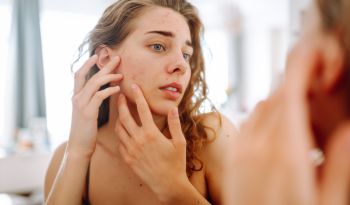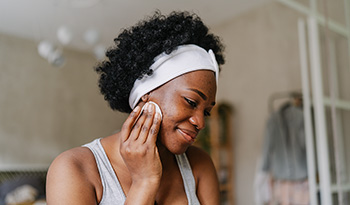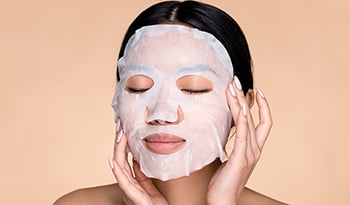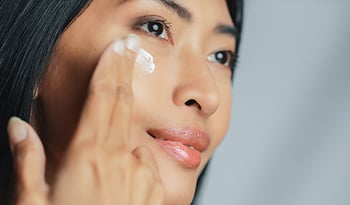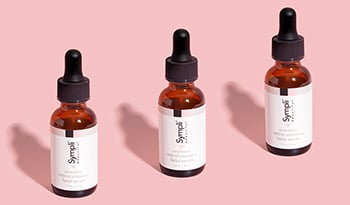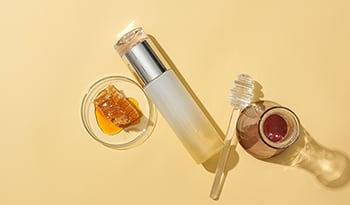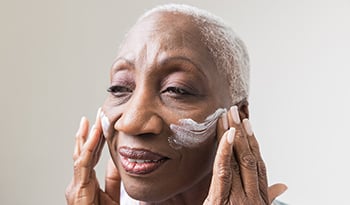5 Ways to Help Your Skin Glow During the Summer Months

Your skin, the largest organ in the human body, constantly gets exposed to the elements. Our skin also reflects what goes on inside the body. Since the skin comprises constantly regenerating cells, you must eat the correct nutrients to help your cells grow healthy. Use supplements that will give your skin that extra glow, especially during the summer months.
Vitamins and minerals are necessary for all cells to replicate and repair their DNA when damaged. Remember, when exposed to the sun, you expose yourself to sun radiation. Your cells need the correct nutrients to help combat the damage that prolonged sun exposure can cause. Therefore, below are five supplements that will help your skin look flawless and glow during the summer months.
Collagen Proteins Are The Foundation of the Skin
Collagen, the most abundant protein in the body, holds together many of the cells in the body. It helps in the adaptation and acclimatization of an organism during its life. Collagen is the foundation of the skin, but there can be a loss of this protein due to age, stress, poor diet, exposure to the environment, and sun rays. The skin’s structure, otherwise known as the extracellular matrix, retains water and supports a firm, strong, and smooth skin.
Young and healthy skin contains about 75% collagen, and this amount decreases gradually as we age. Sunlight, smoking, pollution, lack of antioxidants in the diet, and excess alcohol consumption may lead to a more rapid decline in the elasticity of the skin and loss of strength and stability in the skin’s collagen scaffolding, ultimately leading to lines and wrinkles forming.
Topically applied skin products like serums, creams, and lotion do not penetrate the deeper levels of the skin. In a study by Bolke et al. in the Journal of Nutrients, 72 health women were randomly assigned to drink a placebo or collagen peptides dietary supplement for 12 weeks and with a 4-week follow-up. The women who consumed the collagen peptides, with other antioxidants like vitamin C, zinc, and biotin, showed improved skin hydration, elasticity, smoothness, and density. After 4 weeks of stopping the supplement, the women still had minimal changes in their skin appearance.
Therefore, college supplementation can reach the extracellular matrix and improve skin hydration, smoothness, and elasticity. Although the number of collagen proteins to consume depends on your diet, the literature recommends 2-15 grams of collagen supplementation to improve skin appearance.
Biotin Aids in Cellular Energy
Biotin, or Vitamin B7, is a water-soluble vitamin responsible for helping cells make glucose, the sugar allowing cells to get their energy. It is also responsible for amino acid metabolism and fatty acid synthesis to keep the skin cell’s structure intact. Low biotin levels may lead to dry and scaly skin, red rash around the eyes, nose, mouth, and hair loss.
Antibiotics and conditions affect the absorption of nutrients from the intestines that can lead to biotin deficiency. Oral biotin supplements can help increase the levels. A dose of 5 mg per day can bring biotin levels back to normal, helping your skin cells make the lipids that protect it from inflammatory damage that the environment can cause.
Omega Fatty Acids Help Maintain Cell Structure
Essential fatty acids represent types of polyunsaturated fatty acids not made by the body. Thus, individuals must consume these elements from the diet. They place a role in many of our cellular functions, but in the skin, they help provide structure to our cells, as they are the building blocks of the cell membranes and organelles in these cells.
Essential fatty acids like Omega-6 and Omega-3 oils help regulate inflammatory responses to injury from sun-excess sun exposure. Frequent inflammation has proven to lead to premature aging, especially with ultraviolet (UV) rays, as they lead to a signal cascade that promotes inflammation. Essential fatty acids help protect the skin by stopping this signaling cascade, minimizing damage from UV rays, and maintaining its structure and hydration.
The skin’s reaction to low levels of essential fatty acids includes the overproduction of skin cells, leading to increase itching, redness, and scaliness. Foods with high Omega-6 and Omega-3 fatty acids include fish oil, flaxseed oil, eggs, and walnuts. In addition to ingesting essential fatty acids, you can topically apply these oils to the skin.
Vitamin C is A Powerful Antioxidant
Vitamin C is another essential nutrient since we cannot make our own vitamin C. We must acquire vitamin C from citrus fruits, green leafy vegetables, fruits like strawberries, and other berries. It is a powerful antioxidant.
In the skin, vitamin C will work in the extracellular matrix, the part that is mainly composed of collagen. When exposed to UV light, vitamin C will protect the skin from any damage caused by the UV rays from sunlight. As you spend more time out in the sun, the levels of vitamin C in the skin will decrease as it has to work more to protect the skin from the damage caused by harmful UV rays.
Vitamin C is also essential for protein synthesis that makes up the extracellular matrix collagen. Vitamin C proves vital for the enzymes that stabilize the structure of collagen, a braided strand of proteins that help maintain structure. The vitamin also helps synthesize collagen protein from our genetic material and tells the body if more collagen proteins are needed. Thus, many of the physiological systems are affected when someone is deficient in vitamin C.
In addition to supplementing with vitamin C, you can also use topical formulations of vitamin C to help prevent the changes associated with sun exposure and aging. Although vitamin C is available in creams, patches, and serums, only serums tend to have active vitamin C. Vitamin C gets inactivated when exposed to sunlight. Serum formulations help control the stability of vitamin C, as they can keep a more acidic environment to allow absorption through the skin. Topical vitamin C is best used after exposure to sunlight, not before.
Sunscreen Protects Our Skin
Finally, sunscreen helps protect against the sun’s ultraviolet rays which will help prevent premature skin aging. It offers physical protection to help reflect and scatter the light, but it also provides a protective effect by absorbing the light. Sunscreens that contain zinc help protect against UVA rays. Sunscreens that contain microfine titanium dioxide protects against UVA and UVB and have a higher refractive index. They tend to be less cosmetically pleasing as these sunscreens appear white.
Sunscreens that contain antioxidants like vitamin C help combat the effects of UV ray’s exposure. When looking for sunscreen, look at the sun protection factor, indicating the time duration of the sunscreen’s effectiveness, with SPF-15 or high being the recommended strength.
When enjoying the summer months, think about protecting your skin so that it can continue looking young, healthy, and smooth. Remember, the skin is your body’s largest organ, and it has many layers to it. Collagen is its foundation, and it serves to keep the skin hydrated, elastic, and smooth. Then consider your skin cells, as they need strong cell membranes, and essential fatty acids can help provide this.
Vitamins like biotin and vitamin C can then serve as antioxidant support and protection against the damaging effects of UV light. And finally, applying SPF-15 or higher sunscreen will help protect your skin from the damaging effects of UV rays to keep it glowing and healthy. Above all, remember that eating a healthy diet filled with antioxidants and drinking plenty of water will be the best thing that you can do for your skin. Your skin will thank you for years.
References:
- Bolke L, Schlippe G, Gerß J, Voss W. A Collagen Supplement Improves Skin Hydration, Elasticity, Roughness, and Density: Results of a Randomized, Placebo-Controlled, Blind Study. Nutrients. 2019;11(10):2494. Published 2019 Oct 17. doi:10.3390/nu111024941.
- Essential Fatty Acids and Skin Health. Linus Pauling Institute. (2021, January 1). https://lpi.oregonstate.edu/mic/health-disease/skin-health/essential-fatty-acids#table-2.
- Gabros S, Nessel TA, Zito PM. Sunscreens And Photoprotection. [Updated 2020 Sep 29]. In: StatPearls [Internet]. Treasure Island (FL): StatPearls Publishing; 2021 Jan-. Available from: https://www.ncbi.nlm.nih.gov/books/NBK537164/
- Paul C, Leser S, Oesser S. Significant Amounts of Functional Collagen Peptides Can Be Incorporated in the Diet While Maintaining Indispensable Amino Acid Balance. Nutrients. 2019;11(5):1079. Published 2019 May 15. doi:10.3390/nu11051079
- Telang PS. Vitamin C in dermatology. Indian Dermatol Online J. 2013;4(2):143-146. doi:10.4103/2229-5178.110593
- Saleem F, Soos MP. Biotin Deficiency. [Updated 2020 Apr 20]. In: StatPearls [Internet]. Treasure Island (FL): StatPearls Publishing; 2021 Jan-. Available from: https://www.ncbi.nlm.nih.gov/books/NBK547751/
DISCLAIMER:This Wellness Hub does not intend to provide diagnosis...
















































































 Table of Contents
Table of Contents



